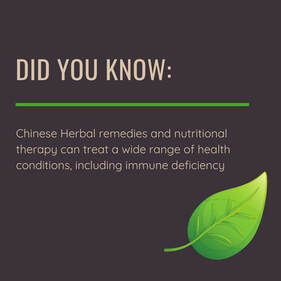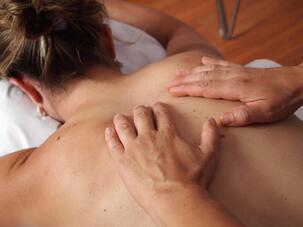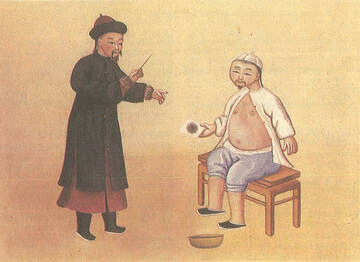 There are a number of complications that can happen to a woman’s ovaries over her lifetime such as Ovarian Cysts which commonly occur and even go away without treatment. There are more serious problems that can occur in relation to ovaries, such as ovarian cancer, which require extensive treatment. The best way to treat these conditions is with preventative care and frequent check-ups with your Primary Care Physician. Below are tips that you can fit into your daily routine for better ovarian health. Healthy Foods Women with polycystic ovarian syndrome, a condition involving the imbalance of sex hormones, have a higher risk of ovarian cancer and obesity. Because of this, it is even more important that those with PCOS maintain a healthy diet. Below are foods to consider in your diet. Lean Proteins are important to consume! Limiting your saturated fat intake can help decrease the body’s inflammation and lower the chance of ovarian cancer. Good sources of lean proteins include fish, chicken, lentils, beans, and eggs. Fruits and Vegetables: Fruits and vegetables are never a bad choice to include more of into your diet. They are packed with vitamins and antioxidants to help strengthen your body’s immune system and fight disease. Tomatoes and onions can especially help prevent ovarian cancer. Nuts and Seeds: Healthy fats are important for ovary health. The unsaturated fats in nuts and seeds can provide omega-3 fats that can reduce inflammation and help decrease your cancer risk. Exercise Women who are overweight or obese have a higher risk of developing ovarian cancer. Along with a healthy diet, it is important to have regular exercise to maintain health. Exercise is thought to help the body’s immune system, which in turn can help prevent obesity and ovarian cancer. Starting off with just moderate exercise that includes taking a walk most days or light jogging can be impactful on lowering your risk. Herbs Chinese Herbs: Cinnamon and Rehmannia is a common combination of herbs that has been used in traditional Chinese medicine to treat ovarian cysts. These herbs can be found out at health stores as well as be ordered online. Brassica vegetable extract: This is a natural antioxidant that can help prevent diseases such as cancer, diabetes, and other chronic diseases. Brassica vegetables include kale, broccoli, cauliflower, cabbage, and Brussels sprouts. These vegetables contain glucosinolates, which work as an anti-carcinogen, helping to decrease the risk of cancer. You can find brassica vegetable extract in your local health food store. Acupuncture Spleen 6: This point is where the three yin channels of the leg (spleen, liver and kidney) intersect. It is located above the tip of the medial malleolus on the posterior border of the medial aspect of the tibia. To put it simply, it can be found three inches above the tip of the inner ankle bone in a depression. In Chinese medicine, the spleen meridian has a big influence on digestion and reproduction. It is vital for the production of blood and the control of the blood. As one of the main points for reproductive health, Spleen 6 can be used for infertility, uterine bleeding, prolapse, pain in the genitals, menstrual cramps, difficult labor, irregular periods, painful periods, low milk supply, ovarian cysts, fibroids as well as to expel the placenta post-childbirth. For men, Spleen 6 can be helpful in treating impotence, pain in the genitals, hernia, and premature ejaculation. Ren 12 – This point is located on the midline of the abdomen, about four thumb-breadths directly above the belly button. This is the final point that completes the four doors grouping. Just like its counterparts, Ren 12 can help with bloating, abdominal pain, and diarrhea. It is also used to treat stomach aches, acid reflux, vomiting, and diarrhea. This point also benefits the uterus and ovaries and helps to regulate qi. Along with these lifestyle guidelines, consider the mentioned acupuncture points (along with many others) for preventative treatment as well as managing an existing problem. These can help get you back on the road to better health! What are you waiting for? Contact us to schedule your acupuncture appointment today! https://www.drlaurieterzo.com/dr-laurie-terzo-blog/2019/3/5/top-10-acupressure-points-for-fertility#:~:text=Spleen%206%20%2D%20This%20point%20is,benefits%20the%20uterus%20and%20ovaries.  Acupuncture is known to be one of the cures to combat symptoms of seasonal affective disorder. SAD affects millions of Americans a year and can turn a once productive person to a tired and depressed individual. Although, SAD has various symptoms, probably the most common is depression. And, acupuncture has been shown to work great when treating symptoms of depression. WHAT IS SEASONAL AFFECTIVE DISORDER? Seasonal affective disorder (SAD) is related to the change in seasons and tends to begin and end around the same time each year for those affected by it. SAD is a type of depression and should be taken seriously. Here are some of the symptoms of SAD to look out for: •Having low energy •Feeling sluggish or agitated •Feeling depressed most of the day, nearly every day •Losing interest in activities you once enjoyed •Experiencing changes in your appetite or weight •Having problems sleeping •Having difficulty concentrating •Having frequent thoughts of death or suicide •Feeling hopeless, worthless or guilty WHAT THE STUDIES HAVE TO SAY A study published by the National Institute of Health looked at the management options for treating depression. Depression is one of the most prevalent symptoms of seasonal affective disorder. This study was conducted by the Canadian Network for Mood and Anxiety Treatments. They looked at multiple complementary and alternative methods for treating depression, including light therapy, acupuncture, exercise, yoga and natural health supplements like Omega 3 fatty acids and St. John’s Wort. The study concluded acupuncture is most commonly used as a third line of treatment for those seeking alternative methods to deal with depression, despite the fact it tends to be very effective. Researchers recognize acupuncture does provide benefits to treating depression, but more work must be done to truly realize the full capacity of those benefits. ACUPUNCTURE FOR SAD GV 20 There is a point located on the top of the head, midway between the apexes of your ears. This point is known as governing vessel 20 (GV 20). GV 20 is one of the most powerful points in the acupuncturists’ arsenal. It raises emotional energy, which in turn can help alleviate depression. Applying pressure or lightly tapping this point is a great way to counter depression on your own and it can be done pretty much anywhere. LV 3 Liver 3 (LV 3) is located on the top of the foot between the big toe and the second toe, where the metatarsal bones meet. Stimulating this point helps stagnant blood to move freely again. Imagine a beaver dam on a river. If there is a lot of debris built up against the beaver dam, then the river can’t flow freely. This same analogy can be used when describing what happens to blood flow in the body. When the blood flow becomes stagnant and minute, then depression can set in because the body isn’t getting the proper nutrients it needs to function. In Chinese medicine theory, stagnant blood flow can lead to depression. Liver 3 is used frequently in traditional Chinese medicine treatments to re-establish the flow of blood throughout the body. HT 3 Heart 3 (HT 3) is located on the inside of the elbow. When the elbow is flexed, the point is midway between the inner end of the elbow crease and the tip of the elbow bone itself. In traditional Chinese medicine, the heart meridian is often treated when depression is a presenting complaint. Depression causes the heart meridian to become deficient in energy. HT 3 stimulates the energy needed to combat depression symptoms.  Since the outbreak of the COVID-19 (also known as the coronavirus or the SARS-Cov-2) in December 2019, the world has been working together to not only find a cure for this wretched disease, but to also find ways to best combat it or even prevent one from being a recipient of it. We have been reading through published research papers related to the treatment of COVID-19 using Traditional Chinese Medicine (TCM) and have come across some helpful information you can use to try and combat COVID-19 should you catch it. Physical exercise as therapy to fight against the mental and physical consequences of COVID-19 quarantine: In the above mentioned paper, the importance of maintaining physical activity (PA) in your daily routine despite being in quarantine throughout the COVID-19 Pandemic is discussed. A quarantine was obviously the best choice in order to stop the rapid spread of infection and become more prepared for how to handle this unexpected Pandemic, however, finding ways to adapt and overcome the change in routine in order to maintain a healthy lifestyle is still important. The paper states that “initiating a sudden quarantine state implies a radical change in the lifestyle of the population.” It also states that in order to “...counteract the negative consequences of certain diseases, such as diabetes, hypertension, CVD, respiratory diseases, or even simply to guarantee an active aging by reducing the risk of frailty, sarcopenia and dementia, as associated diseases in older people, [physical activity must stay consistent].” Exercise is important for all, but this paper focuses heavily on those who are at higher risk by being immunocompromised and even of the elderly generation as exercise in older people prevents faulty and positively impacts them. This paper suggests that for those who are still stuck as home and/or have had to extend their quarantine, to find a well-regimented exercise regime that can help the individual maintain an active lifestyle in order to stay healthy and best combat this virus. Recommended Movement Guidelines As stated in the study, the following is recommended if the individual is under quarantine: Weekly exercise: 200-400 minutes of exercise per week (being spread out over the course of 5-7 days to “compensate for the decrease in normal daily PA levels).” Of those required days, 2 days of resistance training is combined with 3+ days of aerobic training. There are many reasons that exercise is recommended when it comes to nurturing a healthy immune system. The most important reason involves your body temperature. As you workout, your body temperature rises during and after exercise which helps to prevent bacteria from growing, thus helping to fight infection. Physical activity also helps flush out bacteria from your lungs and even slows the release of stress hormones. Acupressure for Better Movement Chingling, Weiling: Pressing on these points release tension from the legs which makes it easier to stretch them out. To effectively use this acupressure point, slide the middle and index fingers down the back of the other hand (towards your wrist) and move along the spaces to the outside of the middle two fingers. These points help to release tension out of the legs making it easier to stretch the legs out. Gallbladder 34 (yang ling quan): This point is specifically used to relax the tendons and ligaments within your body. It is located on the outer aspect of the lower leg, in the depression in front of and below the head of the fibula. Gallbladder 34 is the command point of the joints and sinews, which makes it a great choice for relieving pain, especially in the lower extremities. It is also used to address hemiplegia, lateral costal pain, bitter taste in the mouth, vomiting and jaundice. This point relieves hip and ankle pain, thus allowing you to move more freely. Bladder 57 (cheng shan): This point relaxes and strengthens the lower back, Relaxes the sinews, invigorates blood, clears heat and even removes obstructions from the channel. This point responds well to strong deep pressing movement when applying pressure. Overall, movement is medicine! It helps keep us healthy and moving throughout our day-to-day life. If you have questions or want to schedule an appointment regarding acupuncture for mobility, reach out! https://exploreim.ucla.edu/wp-content/uploads/Jimenez-Pavon-2020-Physical-exercise-as-therap-copy.pdf http://www.fightingarts.com/reading/article.php?id=624  Everybody gets sick at some point in their life. For some, it’s just a quick weekend thing. For others, it can last for several days and even weeks. Why do some people always get sick whenever there is a bug going around and others don’t? It all comes down to immunity. People who have a stronger immune system, tend to be sick less often. Those with compromised or weak immune systems, seem to get sick at the drop of a hat. There are many things that can be done to strengthen the immune system though. And Traditional Chinese Medicine is probably one of the best and least invasive ways to boost the immune system, not just during the winter months, but all year long. In Traditional Chinese Medicine, the immune system is called Wei Qi (pronounced “way chee”). The Wei Qi is closely associated with the internal organs, specifically the lungs. When the energy of the lungs is well-balanced, Wei Qi is strong and can easily fight off any external attacks. In Traditional Chinese Medicine, the lungs dominate the skin and breathing. If lung function is deficient or compromised in any way, then the body is more open to external pathogens like viruses and bacteria. Common symptoms of decreased Wei Qi or immunity include coughing, sneezing, runny nose, watery eyes, sore throat, headaches, fever and/or chills. Traditional Chinese Medicine is a medical system that has been around for nearly 4,000 years. There are many tools in the kit of a TCM practitioner. Probably the most commonly used tools for building Wei Qi are acupuncture and herbal formulas. Acupuncture uses hair-thin stainless steel, single-use needles that are placed on specific acupressure points that can boost immunity and balance hormones. When the hormones are stressed and unbalanced, illness can occur. Acupuncture points associated with Wei Qi can strengthen the circulation of energy and blood, which will then boost the body’s defense mechanisms, thus helping to prevent illness. Regular acupuncture treatments can also cause the brain to increase T-cells in the body. T-cells destroy bacteria and viruses. Acupuncture needles provoke the body’s immune response by sending T-cells and white cells to the needle sites to fight off the invaders. These effects can last for several days, which keeps immunity higher than normal. Chinese botanicals are another great way to build up Wei Qi. Any herb or herb combination that boosts or enhances the immune system will keep the body functioning at its optimal level. In TCM, there are many individual herbs that boost the Qi and some specifically boost the Wei Qi. Astragalus (huang qi) is one of the more frequently used Chinese herbs. It is used to tonify the Wei Qi, fortify the lungs and protect against pathogens. Studies show huang qi increases white blood cells, which can help fight off infection and pathogenic invasions. Cordyceps (dong chong xia cao) is another immune-boosting herb. Cordyceps enhances immunity by increasing white blood cells, T-cells and interferon. It also can inhibit the growth of cancer cells. While cordyceps works very well by itself, it works even better when used as part of a formula, as do most Chinese herbs. When looking to use Chinese herbs, be sure to seek out a qualified herbalist and TCM practitioner to insure overall safety of the herb or formula. TCM and all of its modalities can be very helpful in staying well and healthy. When added to the practices of proper sleep and nutrition, drinking lots of water and mild exercise, TCM will help keep the body’s immune system healthy. And hopefully if illness does occur, it will only be mild. Here’s to your health!  Did you know that eating healthier foods gives you a better chance to reduce your depressive symptoms? Eating a diet of processed food does more harm to your body due to the fact that those foods may be high in sugars and fats. Additionally, it’s known that there are approximately 10 times as many bacterial cells as human cells in the body. These bacteria serve many purposes including the curation of Vitamin K, digesting the food we consume and even regulating our immune system. This implies that maintaining a healthy gut bacteria and overall diet can improve your mood. SO WHAT CAN I EAT? Studies show that dark leafy greens like spinach, kale, and Swiss chard decrease inflammation, which has been linked to depression. Nuts are another powerhouse used to fight depression. The omega 3 fatty acids found in most nuts can reduce the symptoms of depression. Decreasing daily sugar intake can also help. Excess sugar in the diet decreases a protein called brain-derived neurotrophic factor, which can lead to depression if there is not enough of it being produced. Though symptoms of anxiety and depression vary wildly among individuals, often these symptoms can follow someone for months if not years, slowly wearing down the body. Here are a few simple examples of foods that can help lift your mood: Fatty fish: Fatty fish are high in omega-3. Omega-3 is a fatty acid highly connected to cognitive function. Salmon and sardines are a great choice being among the few foods containing vitamin-D. Eggs: We probably already know this, but the egg yolk is a great source of vitamin-D as well. They are a complete protein, which simply means they contain all the amino acids the our bodies need to grow and develop properly. Brazil nuts: Often those suffering from mood disorders have a heightened level of inflammation. Brazil nuts are high in Selenium, an antioxidant with anti-inflammatory properties. Brazil nuts are also anti-carcinogenic which can help prevent cancers from developing. Pumpkin seeds: Potassium is needed to regulate the electrolyte balance and manage blood pressure. Pumpkin seeds as well as bananas are a great source of potassium. Some studies indicate that pumpkins seeds can have a positive effect on mood thanks to their high zinc levels as well. Zinc is essential for the brain and nervous system, in fact the highest level of zinc in the body is found in the brain regions involved with emotion. Chamomile- For thousands of years people all over the world have used Chamomile to find relaxation thanks to it’s anti-inflammatory, antibacterial and antioxidant properties. Some people believe that the relaxing properties of this herb come from the flavonoids present, this is why a warm aromatic chamomile tea is a very popular remedy for managing anxiety. Yogurt- Praised for it’s helpful bacteria, yogurt can be incredibly beneficial for many reasons. Gut health and brain health go hand in hand. Yogurt and other fermented foods can benefit the gut naturally all the while reducing anxiety and promoting happiness. Green tea: Theanine, an amino acid found in green tea, has recently received popular praise due to its potential effect on mood disorders, such as Seasonal Affective Disorder. Theanine has anti-anxiety and calming effects which can increase the production of serotonin and dopamine. Green tea is easy to add to any diet, and is a great substitute for soft drinks or coffee as green tea also contains caffeine. WHICH FOODS SHOULD I AVOID? Avoid foods made with added sugars or flours such as baked goods (donuts and pastries), breads, pastas and cereals. One should also minimize the consumption of animal fats, processed meats such as bacon, and even butter. It’s important to remember that health starts from within. Maintaining a healthy balance of self-care, such as providing yourself with adequate sleep, hydration and physical activity is just as important as eating well. The road to wellness isn’t always paved, but the good news is that I am here to help guide you though this transformation. If you are somebody who suffers from depression and you are looking for natural, holistic solutions, maybe give these suggestions a try. If nothing else, it is worth looking into. But most importantly, once you find the right path to correcting depression, follow it. Everybody is different and there is no one right answer. |
AuthorsRebecca M H Kitzerow is a Licensed Acupuncturist practicing in La Center, Washington. With over a decade of experience she has won 10 Nattie consumer choice awards from Natural Awakenings Magazine since 2014. Archives
July 2024
Categories
All
|
Photos from Hey Paul Studios, BeGreen_Studio, Pawel Pacholec, 1950sUnlimited, toulupaliaqaz, Joelk75, OnTask, Robert Gourley, cnu_sports, Mitya Ku, wuestenigel (CC BY 2.0), FootMassagez, 401(K) 2013, Mariana Heinz, @EdwardTerry, fishhawk, liverpoolhls, torbakhopper, Boemski, dolomitibl, Driscolltheque, Dave n Laura, Vaping360, MVWorks, Life Mental Health, MVWorks, mikefats, Scot Nelson, jfl1066, wZa HK, ruurmo, Guadalupe Cervilla, Army Medicine, GViciano, torbakhopper, adrigu, Saulo Cruz, Ben Cumming, marniejoyce, kcxd, JasonCorey, kanenas.net, Live to Create Photography, gm.esthermax, Unique Hotels Group, Zenspa1, mysiana, Tobias Lindman, Leader Nancy Pelosi, Kristoffer Trolle, swanksalot, Bill Selak, Parker Knight, stimpsonjake, Gedankensprudler, SuperFantastic, tonynetone, marniejoyce, JeepersMedia, Illusive Photography, 'Ajnagraphy', Iban Torras, scotted400, gtall1, dvanzuijlekom, BPPrice, Skley, torbakhopper, Renato Ganoza, anka.albrecht, QUOI Media, Public Domain Photos, Instant Vantage, Victor Tongdee, Free Grunge Textures - www.freestock.ca, sportEX journals, Nadja Tatar, angela n., marniejoyce, MVWorks, Karolina Kabat, Thomas Fisher Rare Book Library, UofT, ginnerobot, tracilawson, haven't the slightest, My Photo Journeys, Pierre Willemin, Florena_Presse, SuperFantastic, colindunn, zzkt, TraumaAndDissociation, ER24 EMS (Pty) Ltd., shixart1985 (CC BY 2.0), marniejoyce, Tomás Fano, freestock.ca ♡ dare to share beauty, Archives New Zealand, Jaykhuang, airdrie.m, Go-tea 郭天, OnTask, wuestenigel, focusonmore.com, Disney | ABC Television Group, Andrew Gustar, Didriks, ConstructionDealMkting, charlywkarl, barnimages.com, Lel4nd, runwaypilates, michaelstephanfotografie, McLevn, TraumaAndDissociation, eLife - the journal, Lars Plougmann, wuestenigel, shixart1985, boviate, davis.steve32, kevin dooley, @the.photoguy (insta), frederic.gombert, Feathering the Nest, Victor Tondee, shixart1985, wuestenigel, Joe K Gage, kennethkonica
 RSS Feed
RSS Feed
